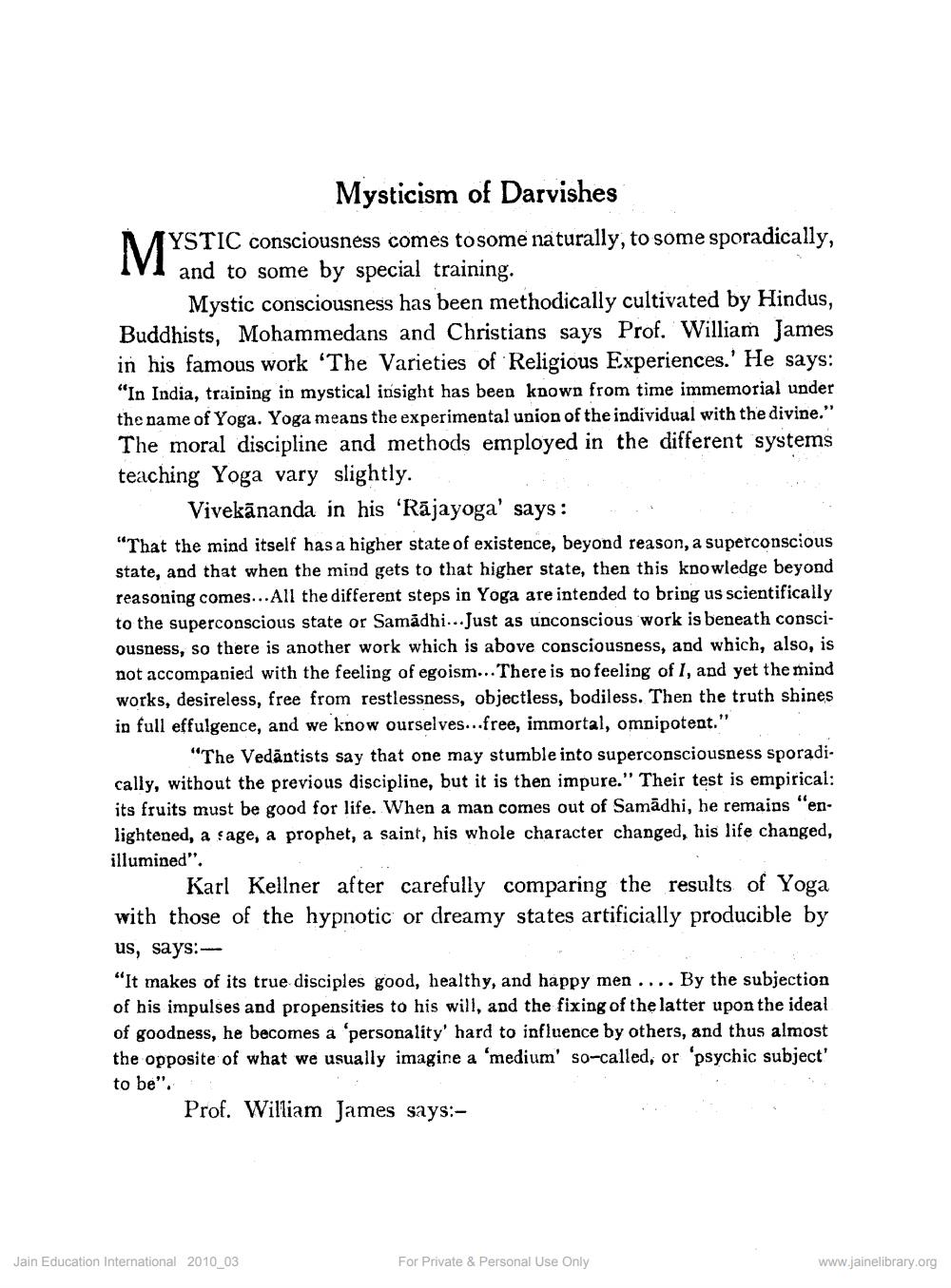________________
Mysticism of Darvishes M YSTIC consciousness comes tosome naturally, to some sporadically, IVI and to some by special training.
Mystic consciousness has been methodically cultivated by Hindus, Buddhists, Mohammedans and Christians says Prof. William James in his famous work "The Varieties of Religious Experiences.' He says: "In India, training in mystical insight has been known from time immemorial under the name of Yoga. Yoga means the experimental union of the individual with the divine." The moral discipline and methods employed in the different systems teaching Yoga vary slightly.
Vivekānanda in his 'Rājayoga' says: "That the mind itself has a higher state of existence, beyond reason, a superconscious state, and that when the mind gets to that higher state, then this knowledge beyond reasoning comes... All the different steps in Yoga are intended to bring us scientifically to the superconscious state or Samadhi... Just as unconscious work is beneath consciousness, so there is another work which is above consciousness, and which, also, is not accompanied with the feeling of egoism... There is no feeling of 1, and yet the mind works, desireless, free from restlessness, objectless, bodiless. Then the truth shines in full effulgence, and we know ourselves...free, immortal, omnipotent."
"The Vedāntists say that one may stumble into superconsciousness sporadi. cally, without the previous discipline, but it is then impure." Their test is empirical: its fruits must be good for life. When a man comes out of Samādhi, he remains "enlightened, a age, a prophet, a saint, his whole character changed, his life changed, illumined".
Karl Kellner after carefully comparing the results of Yoga with those of the hypnotic or dreamy states artificially producible by us, says:"It makes of its true disciples good, healthy, and happy men .... By the subjection of his impulses and propensities to his will, and the fixing of the latter upon the ideal of goodness, he becomes a 'personality' hard to influence by others, and thus almost the opposite of what we usually imagine a 'medium' so-called, or 'psychic subject' to be".
Prof. William James says:
Jain Education International 2010_03
For Private & Personal Use Only
www.jainelibrary.org




